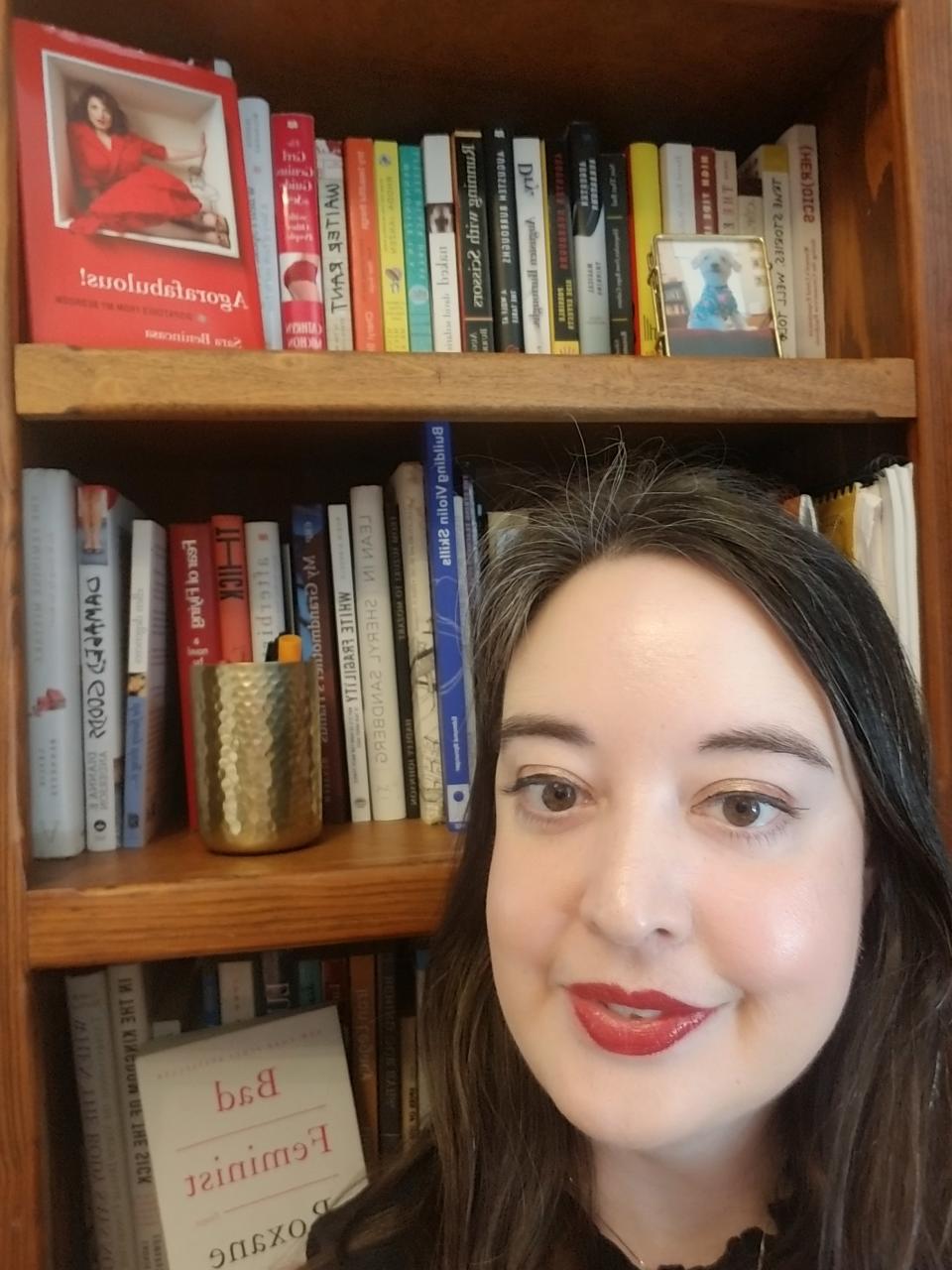This is what it’s like to have aphasia and struggle to find the words
June is Aphasia Awareness Month.
When I read the news about actor Bruce Willis’ diagnosis, a word I hadn’t seen in years leapt off the screen: aphasia, a loss of ability to understand words or verbally express yourself. A picture of myself eight years ago flashed through my mind. I was sitting in a wheelchair in my doctor’s office, desperate to explain my symptoms but unable to find the words.
I have lupus, an autoimmune disease. When many people think of brain injuries, they think of traumatic brain injuries such as concussions or falls from high distances, but there are also non-traumatic brain injuries that occur after strokes, infections or lack of oxygen, for example. That’s what I had. My own immune system attacked my brain because it misidentified it as invading germs. The danger was always inside me, lurking just under my scalp.
I became severely ill one day after I stood up at the end of my workday and realized I had forgotten how to walk. Over the next month, my brain would become inflamed, robbing me of many memories, changing my personality and destroying my balance and motor skills. But the ability brain inflammation stole from me that I missed the most was my verbal skills.
Before my illness, my mind brimmed with words: running commentary on the cars in front of me on the highway, additions to my to-do list or emails that I composed in my head before sending. Aphasia ripped these strings of nouns and verbs from my brain, leaving an eerie silence.
When I tried to communicate with my family and caretakers, words hovered just out of my grasp. I spoke in short, stilted sentences. I forgot simple, everyday words, like “help,” which forced me to cobble together other words to make my point. When I forgot the word “envelope,” I asked my caretaker for “a thing that another thing goes inside and then you put it in the mail.” When I needed a pillow, I asked for a “head thing.” My caretaker smiled and brought me a hairbrush. My life had morphed into an endless game of charades in which I was always losing. Often, I said nothing at all, exhausted by the immense effort it took to communicate. Aphasia had become the word that would erase all others.
One of my worst memories of aphasia is of lying in bed crying one afternoon. Emotions swirled through my head. But without the words to define my feelings, I was helpless to resolve them. I lacked the words to even tell myself it was going to be OK.

I only rarely visited restaurants or stores during the year I battled brain inflammation. My wheelchair, lack of hair, and face bloated from the steroids prescribed to treat my disease were visible signs of my illness. Waiters and cashiers spoke gently and waited with patience for my reply. But had I not shown any physical signs of disease, like many people with aphasia, I suspect I might have been the object of others’ irritation and impatience.
I was terrified of losing my ability to speak, so I balanced my laptop on my stomach as I spent each day in bed, then challenged myself to write 500 words a day. As I relearned how to walk and my thoughts settled back into familiar patterns, my writing habit stuck. Ultimately, my aphasia turned me into a writer.
Although aphasia is permanent for many people, according to Johns Hopkins Medicine, my story has a happy ending. Eight years after I first became sick with brain inflammation, I’ve returned to my job as a teacher. There is no cure for lupus, but I’ve learned to manage my disease with medication. I write about my experience with lupus and brain inflammation, giving voice to that frightened young woman so many years ago who struggled to speak.
My experience with aphasia has forever changed the way I see the world around me. When I meet someone who hesitates before speaking or someone who expresses their thoughts differently than most people, I respond with empathy and patience. A phrase from neuroscientist and stroke survivor Jill Bolte Taylor sticks in my mind when I think about my brain injury: “Respect me. I am in here. Come find me.”

